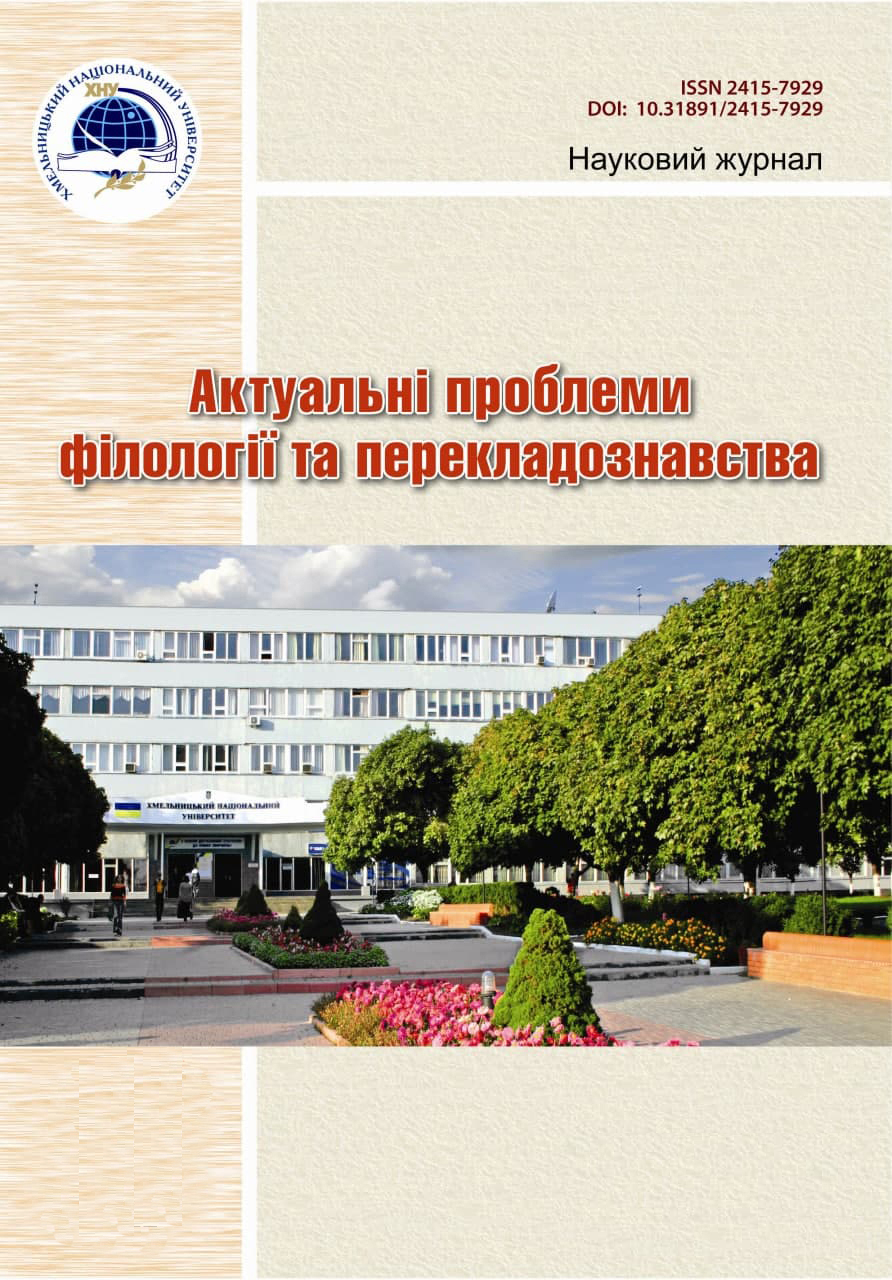TERMS IN SCIENTIFIC AND TECHNICAL TEXT: DEFINITY AND TRANSLATION
DOI:
https://doi.org/10.31891/2415-7929-2024-30-1Keywords:
terminology, term, features of the term, scientific and technical text, translation transformations, equivalentsAbstract
The article deals with the study of terms and terminology in the modern linguistics. The process of terms studying is now in the stage of active development, since the integration processes in the world directly affect the penetration of lexical units from one language into another. The realization of the intellectual potential of the people in the field of industrial and professional communication is inextricably linked with the improvement of engineering and design thought. The study of specialized terminology, processes of scientific nomination in the engineering and technical sphere, reproduction of scientific and technical achievements by own word-forming resources will certainly contribute to the formation and maintenance of modern high-tech processes. Scientific and technical texts relate to the scientific style and find application in the fields of scientific activity, scientific and technological progress of society, education and training. The study is based on the use of materials of scientific and technical literature specialized in certain fields of science and technology.
Terminology units are the object of study of terminology as a field of knowledge. In general, they can be described from three points of view. In terms of linguistics, terms are lexical units of language that carry specialized information when used in certain pragmatic and discursive contexts. This specialized information ensures the transmission of an accurate value that is generally accepted among a particular community of professionals in each industry. From the point of view of cognitive science, terms are conceptual units that represent the necessary and relevant nodes of knowledge in the content structure of a particular field, which are transmitted at the linguistic level by lexical units. The totality of all conceptual spheres forms the conceptual structure of the industry. For specialists, the concept is a starting point in terminological work, while for translators it is only an intermediate instance between the original term and its equivalent in the target language. Thus, the first function of terms is the representation of specialized knowledge. Linguistic, cognitive and communicative dimensions are inseparable in a holistic, holistic description of terms.
At the present stage, it is possible to trace five approaches (formal; ethnographic; conservative; international; measured) to solving one of the key problems for the formation of Ukrainian terminology - the problem of classifying terminology. Terms should be marked by accuracy, motivation, uniformity, compliance with the rules and norms of a particular language etc. Each scientific term has a definition that clearly outlines, limits its meaning.
Among the lexical transformations used in the translation of terms, it can also be effective to use the following methods: transcoding comprising transcription, transliteration, mixed transcoding, adaptive transcoding; compression; loan translation; explications i.e. descriptive translation; concretization or specification and generalization.
Terminology should not be confused with translation studies; terminology work consists in establishing terminology equivalents, that is, lexical units, which are used by specialists, communicating in the target language; the essence of translation studies is the most accurate reproduction of the original units of text by means of the target language. The essence of translation studies is the most accurate reproduction of the original units of text by means of the target language. The term has its own "proper" invariant meaning and performs the function of a semantic differential in various terms. This function should be preserved and accurately transferred to the target language by using the translation tools and own creative initiative and ability of the translator.
Downloads
Published
Issue
Section
License
Copyright (c) 2024 Юлія БОЙКО (Автор)

This work is licensed under a Creative Commons Attribution-NonCommercial-NoDerivatives 4.0 International License.

